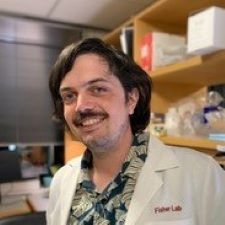Charles H. Adelmann, PhD
Charles H. Adelmann, PhD

Skin cancer is the most common type of cancer worldwide, and sun exposure is known to be one of the main risk factors for developing skin cancers. Melanin pigment gives our hair, eyes, and skin their color, and it also shields skin cells from the carcinogenic effects of sun exposure. Combining just one enzyme (tyrosinase) and two substrates (oxygen and tyrosine) in the lab results in the generation of melanin—yet we know that dozens of other proteins affect pigmentation in humans. How does a process that requires so few components in vitro utilize these other factors in the human body? Dr. Adelmann’s work focuses on the cellular and biochemical contributors to human pigmentation, a clearer understanding of which will facilitate chemopreventative interventions for skin cancer that manipulate or mimic the anti-cancer properties of pigmentation. Dr. Adelmann received his PhD from Massachusetts Institute of Technology and his BA from Rice University.
